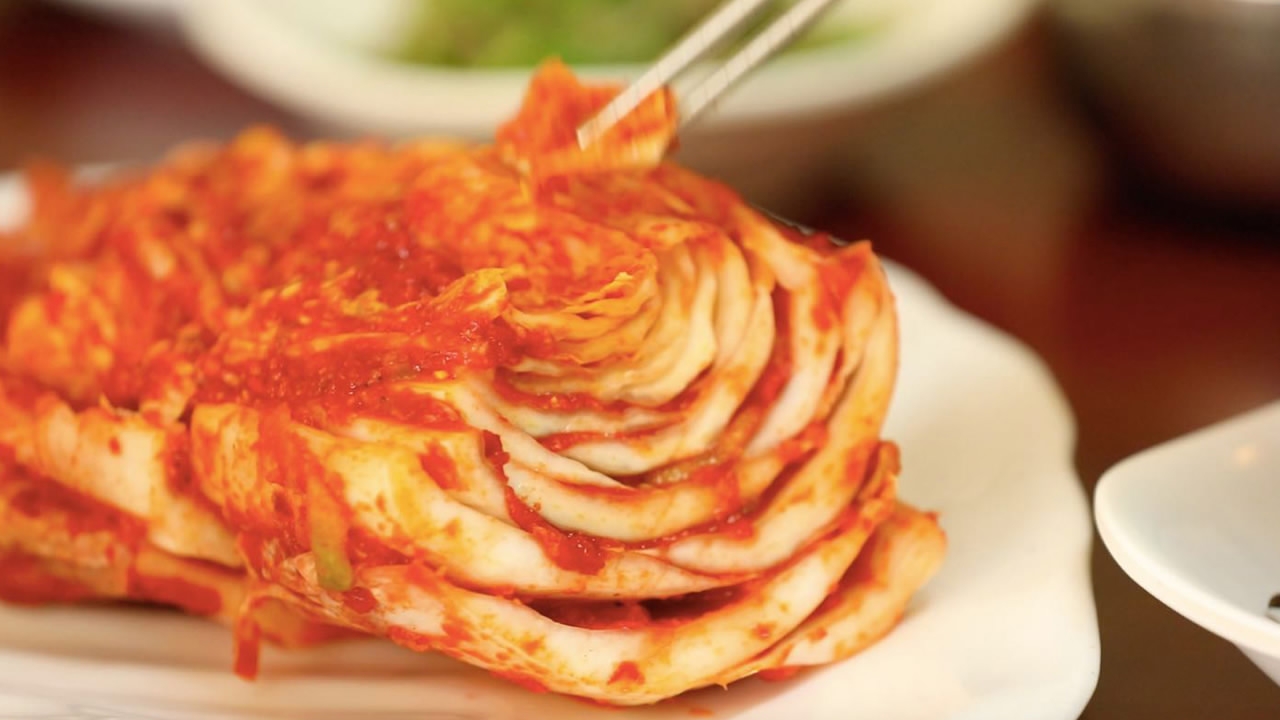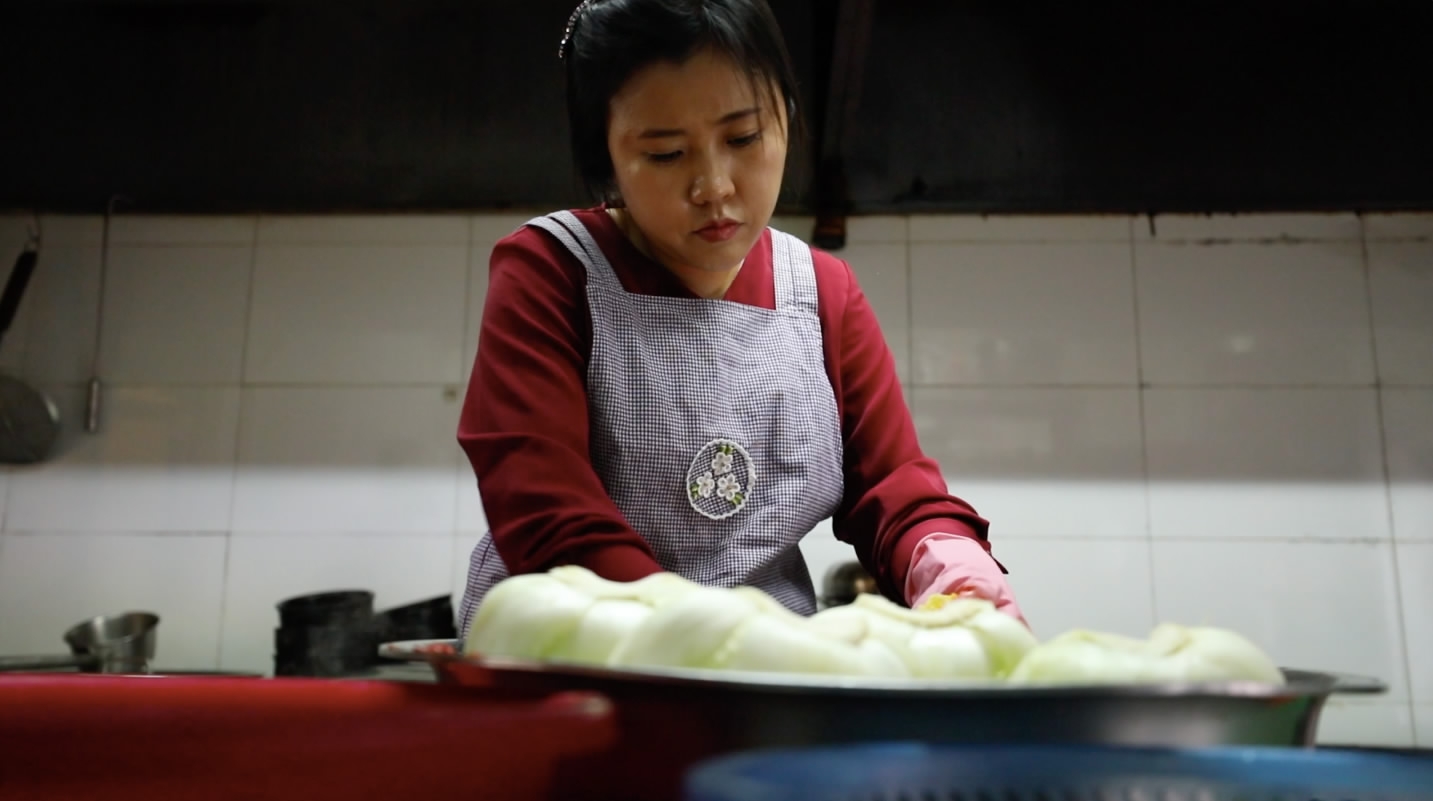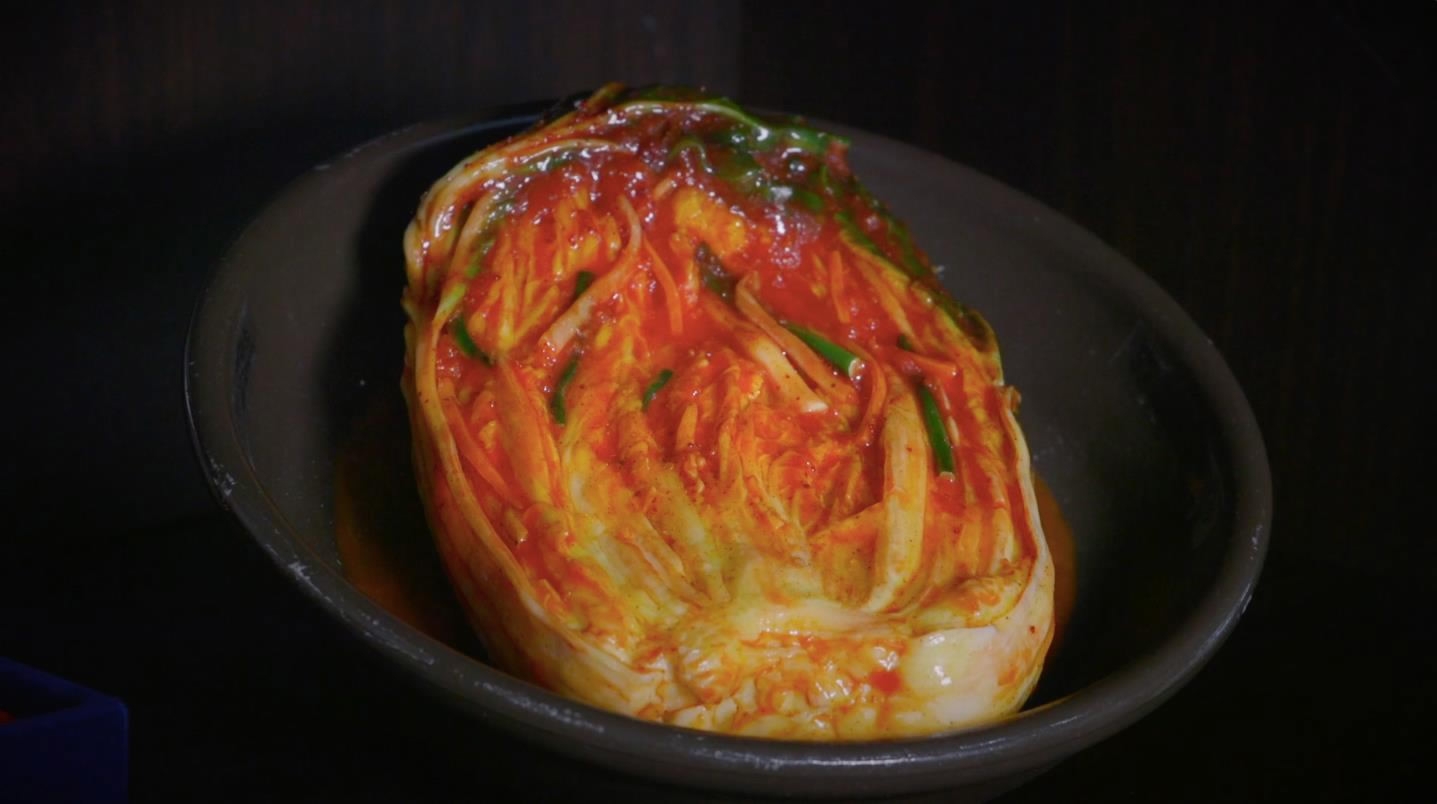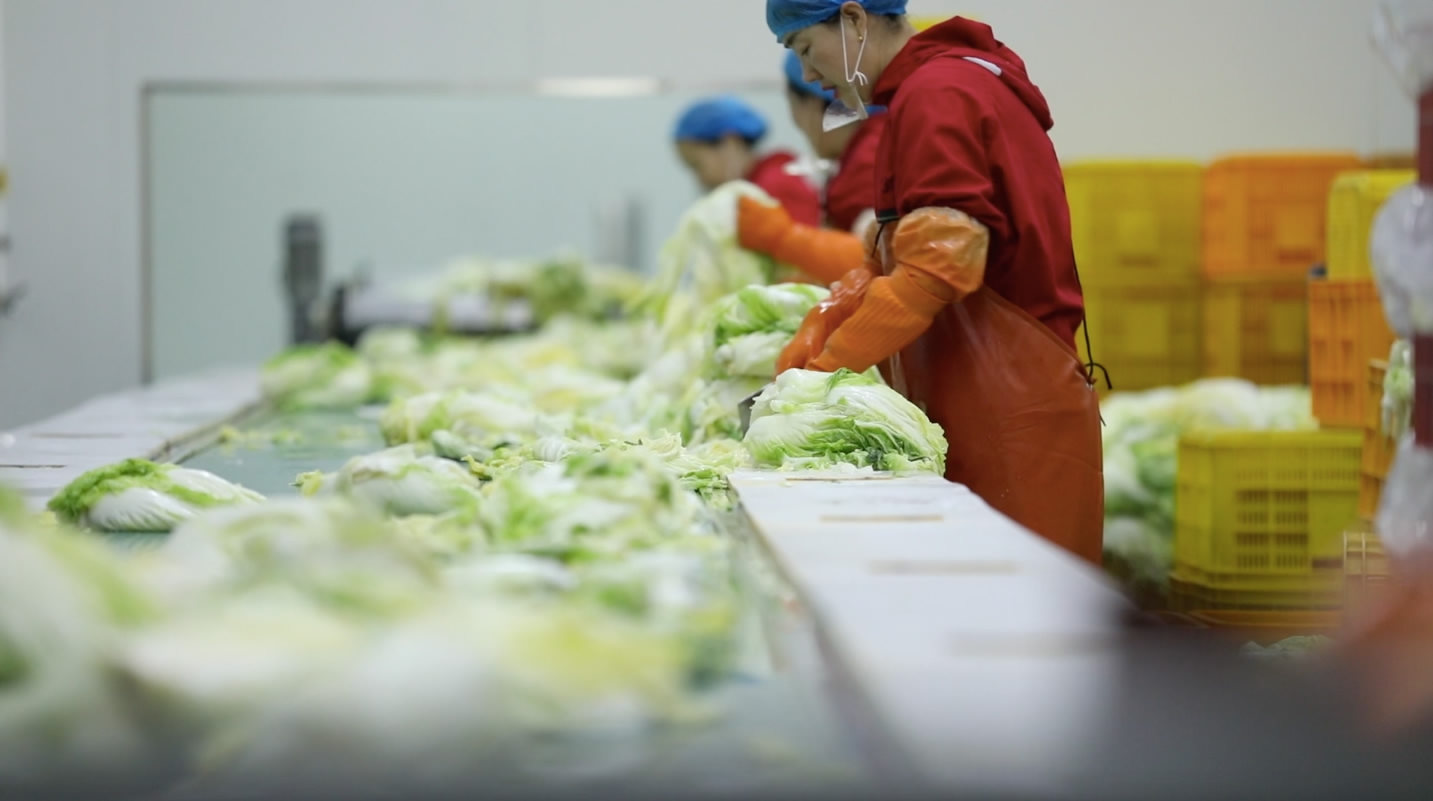
Culture
22:27, 12-Nov-2017
Chinese-made kimchi aims to conquer Korean dinner tables
By Cui Hui'ao

Even if you don't know much about Korean food, you’re still likely to have heard of kimchi. The fermented and pickled cabbage is a staple in Korean cuisine and is gaining popularity among food lovers worldwide. But despite its origins, the kimchi on restaurant dinner tables in S. Korea in recent years has largely been imported from China.
In Yanji city in northeast China’s Jilin Province, restaurant owner Piao Lina makes kimchi for her patrons every day, a skill carried over from her mom.
“Almost every woman of Chaoxian ethnicity knows how to make kimchi," she said. "It’s a family tradition. Around this time of the year, the whole family gathers and makes kimchi together.”

Restaurant owner Piao Lina makes kimchi for her patrons every day. /CGTN Photo
Restaurant owner Piao Lina makes kimchi for her patrons every day. /CGTN Photo
However, with large-scale manufacturing taking over, this tradition has faded over the years. Jingangshan, one of the largest kimchi manufacturers in Yanji, produces around 20 tons daily. The steps aren’t that different from Piao’s but everything is done by machines.
Washed cabbages are cut in half and coated with salt for 16 hours, before they are rinsed and drained. One of the most important steps in making kimchi is to mix the cabbage with sauce. The secret sauce, which contains more than a dozen Chinese spices, should first be rubbed on to the cabbage with bare hands. After that, the cabbage is fermented for 10 days.

Kimchi, a Korean food staple, has become an export business for China. /CGTN Photo
Kimchi, a Korean food staple, has become an export business for China. /CGTN Photo
This batch of China-made kimchi produced by Jingangshan will soon enter S. Korea, which imports around 250-1,000 tons of kimchi from China each year.
At the moment, most of the imported product is distributed to restaurants, not private houses, according to Ha Jaeho, general director at the World Kimchi Institute. “It means that most families produce their own kimchi and consume kimchi produced in Korea. Restaurants stress the importance of price, so they want to buy the cheaper ones."

Jingangshan aims to become the world’s largest kimchi factory. /CGTN Photo
Jingangshan aims to become the world’s largest kimchi factory. /CGTN Photo
Ha said South Korean consumers have concerns about the food safety conditions in China. But according to the owner of Jingangshan Food Co, Zhao Yongzhe, Chinese kimchi has lived up to international standards.
“Chinese regulations on kimchi production are stricter than in South Korea and other European nations, especially in bacteria inspection and the use of additives,” said Zhao.
The company aims to become the world’s largest kimchi factory, exporting the popular food to not only South Korea, but globally.

SITEMAP
Copyright © 2018 CGTN. Beijing ICP prepared NO.16065310-3
Copyright © 2018 CGTN. Beijing ICP prepared NO.16065310-3